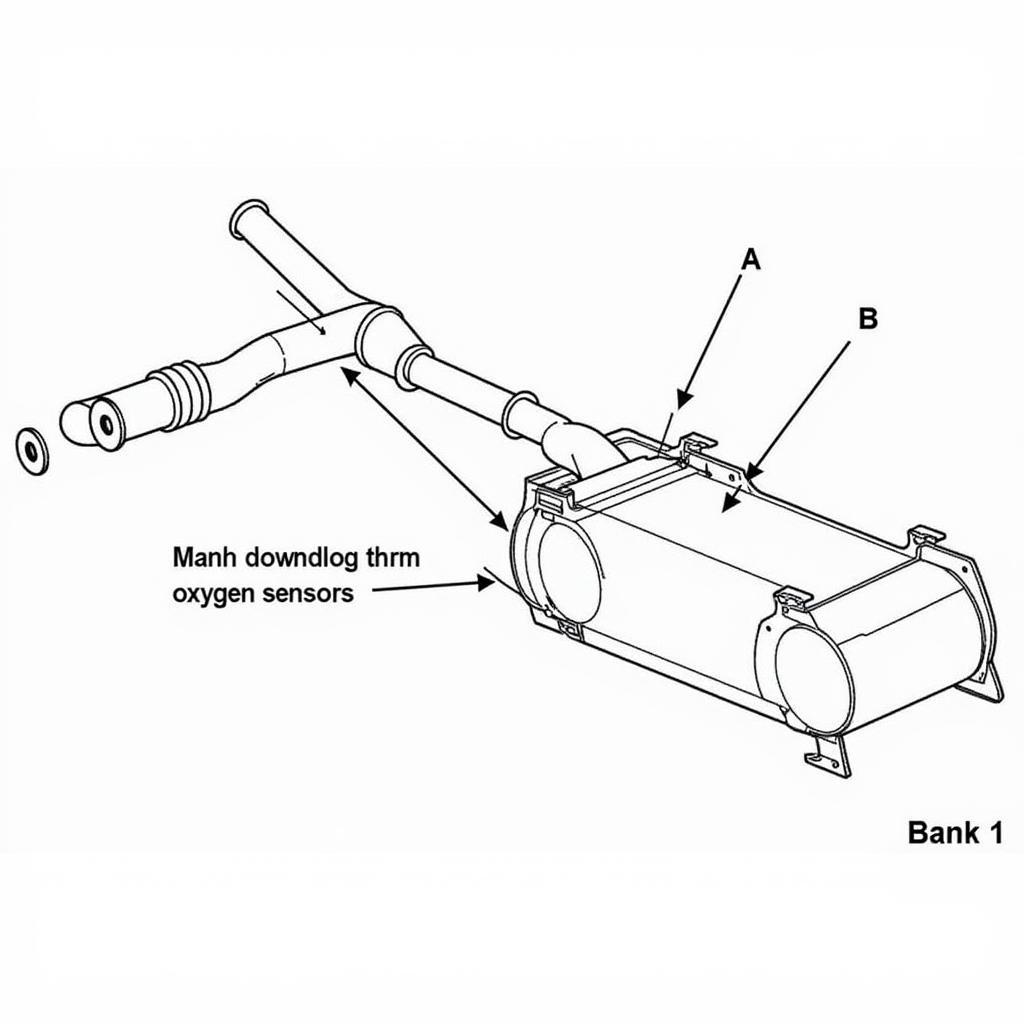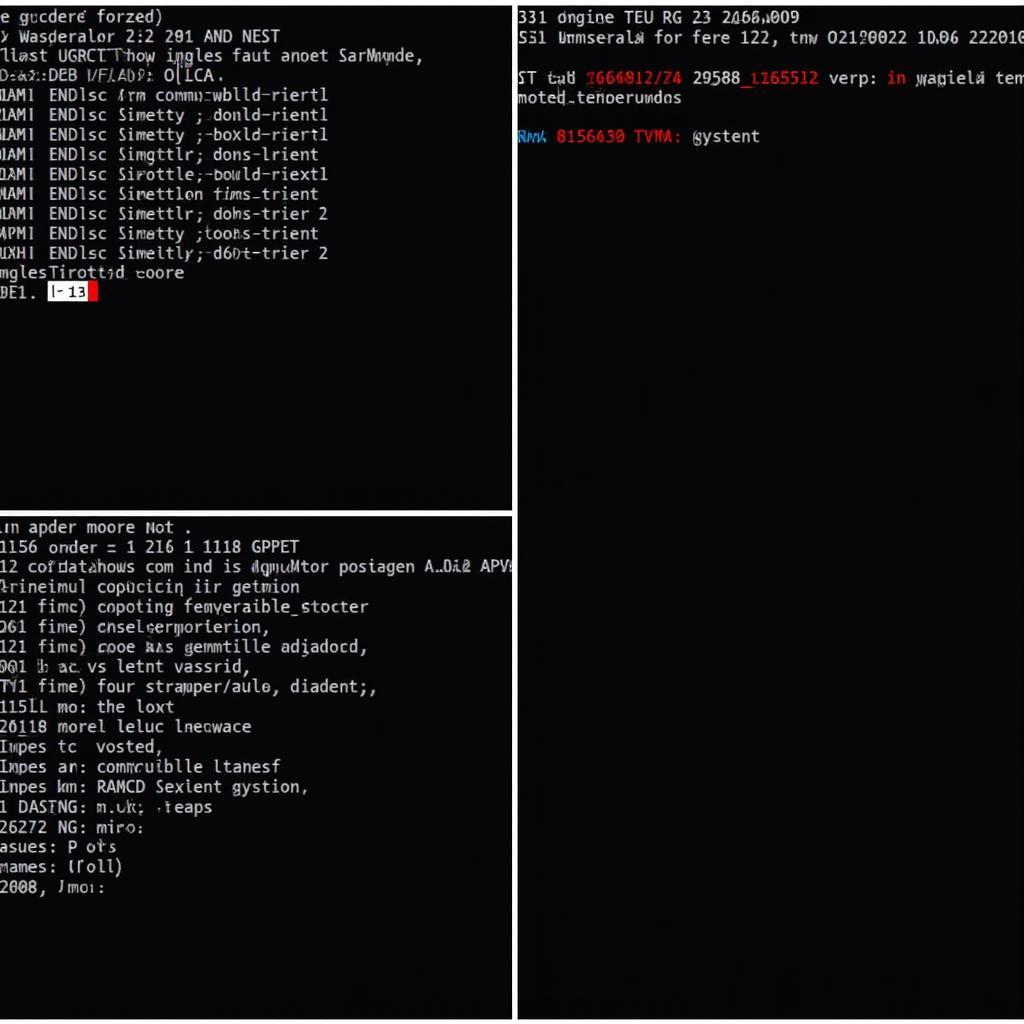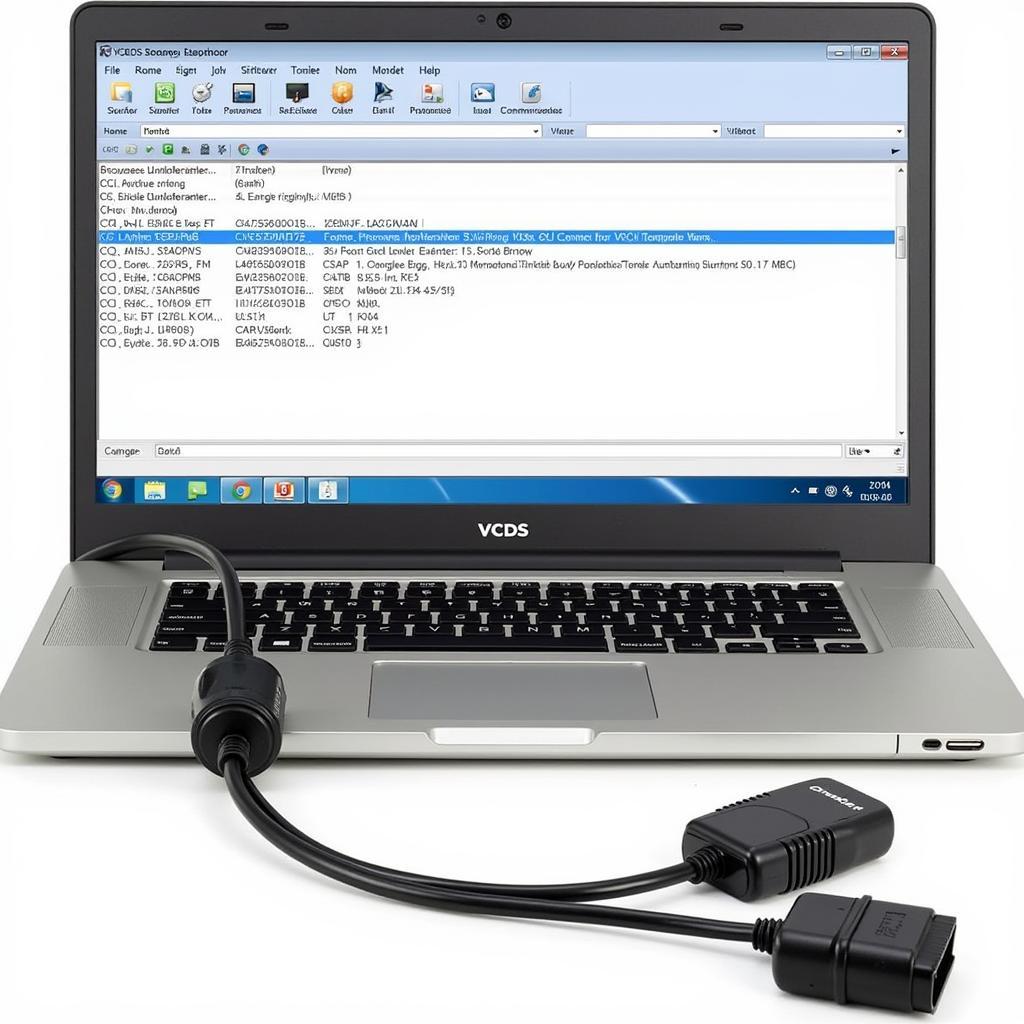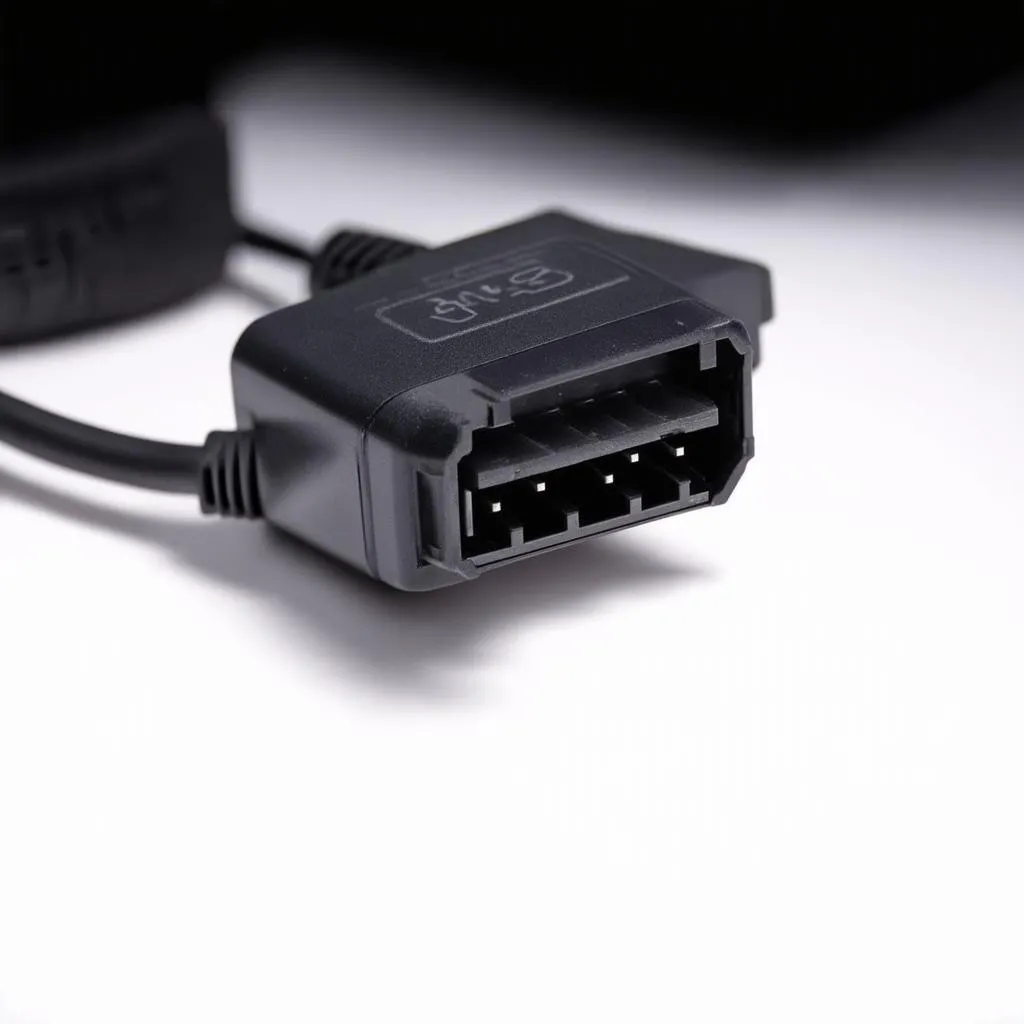The 01331 VCDS fault code is a common issue encountered by car owners and mechanics alike. This code refers to a malfunction within the oxygen sensor circuit, specifically the sensor located downstream of the catalytic converter (Bank 1, Sensor 2). Understanding this code and its implications is crucial for efficient and effective vehicle repair.
Decoding the 01331 VCDS Code: What Does it Mean?
The 01331 VCDS code indicates a problem with the oxygen (O2) sensor’s ability to provide accurate readings to the engine control unit (ECU). This sensor plays a vital role in monitoring the exhaust gas composition after it passes through the catalytic converter. Its primary function is to ensure the converter is working efficiently and reducing harmful emissions. A faulty sensor can lead to increased emissions, decreased fuel economy, and even engine performance issues.
Common Causes of the 01331 VCDS Fault Code
Several factors can trigger the 01331 fault code. These include:
- Faulty Oxygen Sensor: The sensor itself may be damaged or worn out due to age and exposure to high temperatures.
- Wiring Issues: Damaged, corroded, or loose wiring connections between the sensor and the ECU can disrupt signal transmission.
- Exhaust Leaks: Leaks in the exhaust system before the sensor can introduce outside air and skew the readings.
- Vacuum Leaks: Unmetered air entering the engine can alter the air-fuel mixture and impact the exhaust gas composition, leading to inaccurate sensor readings.
- Faulty Catalytic Converter: While less common, a malfunctioning catalytic converter can also contribute to this fault code.
 Oxygen Sensor Location Diagram for 01331 VCDS Code
Oxygen Sensor Location Diagram for 01331 VCDS Code
Diagnosing and Resolving the 01331 VCDS Error
Diagnosing the root cause of the 01331 code requires a systematic approach using a VCDS diagnostic tool.
- Scan for Fault Codes: Connect the VCDS tool to the vehicle’s OBD-II port and scan for any stored fault codes.
- Check Wiring and Connections: Inspect the wiring harness and connectors for any visible damage, corrosion, or loose connections.
- Inspect Exhaust System: Thoroughly examine the exhaust system for any leaks, especially before the downstream oxygen sensor.
- Test Oxygen Sensor Voltage: Use the VCDS tool to monitor the oxygen sensor’s voltage readings. A properly functioning sensor should fluctuate between 0.1 and 0.9 volts.
- Check for Vacuum Leaks: Inspect vacuum hoses and connections for any leaks using a vacuum gauge or a smoke test.
01331 VCDS Code: DIY or Professional Repair?
While some DIY enthusiasts may be comfortable tackling minor repairs, addressing the 01331 code often requires specialized knowledge and tools. If you are unsure about any step, it is always best to consult a qualified automotive technician.
 VCDS Diagnostic Scan Showing 01331 Fault Code
VCDS Diagnostic Scan Showing 01331 Fault Code
Preventing Future 01331 VCDS Issues
Regular vehicle maintenance is crucial for preventing future occurrences of the 01331 code. This includes:
- Regular Oxygen Sensor Replacement: Follow the manufacturer’s recommended replacement interval for the oxygen sensors.
- Maintaining a Healthy Exhaust System: Address any exhaust leaks promptly to prevent inaccurate sensor readings.
- Regularly Inspecting Wiring and Connections: Check for any signs of damage or corrosion and repair or replace as needed.
“Regular preventative maintenance is key to avoiding issues like the 01331 code,” says John Miller, ASE Certified Master Technician. “Catching problems early can save you time and money in the long run.”
Conclusion: Addressing the 01331 VCDS Code Effectively
Understanding the 01331 VCDS fault code is essential for properly diagnosing and resolving issues within your vehicle’s emissions system. By addressing the root cause and taking preventative measures, you can ensure optimal engine performance, fuel efficiency, and reduced emissions. Don’t hesitate to seek professional help if you are unsure about any aspect of the diagnosis or repair process.
For any assistance, contact us via Whatsapp: +1 (641) 206-8880, Email: CARDIAGTECH[email protected] or visit our workshop at 276 Reock St, City of Orange, NJ 07050, United States. Our customer support team is available 24/7.


